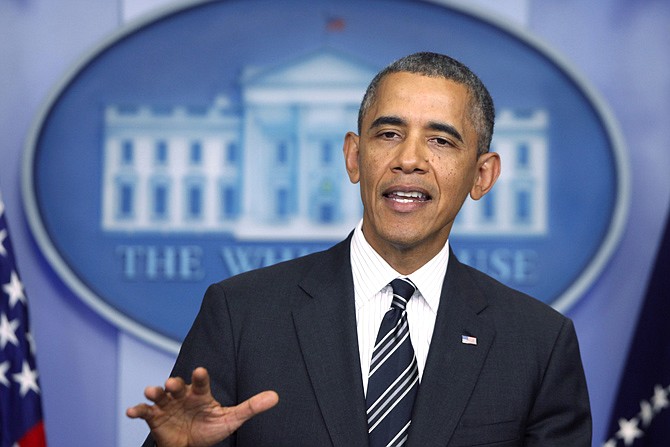WASHINGTON (AP) - U.S. lawmakers from both parties have expressed a willingness to give President Barack Obama's outreach to Iran a chance to end Tehran's nuclear standoff with the West, but at the same time they are crafting tough new U.S. economic sanctions to further isolate the Islamic republic.
Obama's phone call last week to Iranian President Hassan Rouhani was a groundbreaking conversation. It was the first contact in more than 30 years between the leaders of the two countries and an about-face from when Obama's predecessor, George W. Bush, included Iran in his "axis of evil" with North Korea and Iraq.
Obama wants Rouhani to prove that he's willing to curtail some of his country's uranium enrichment activity, which many believe is being used to give Iran nuclear weapons capability. Iran claims its nuclear program is solely for peaceful purposes.
Rouhani said Wednesday in Tehran that Iran is open to discussing "details" of its nuclear activities to reach a deal with world powers, but its right to enrich uranium "is not negotiable" but that "we must enter into talks to see what would the other side propose to us about the details."
The U.S. engagement with Iran, meanwhile, is straining relations with Israel, a key American ally.
Israeli President Benjamin Netanyahu said in a speech at the United Nations Tuesday that the new Iranian president was conducting a "charm offensive." Iran and Israel see each other as arch enemies. Tehran does not recognize the Jewish state, and supports anti-Israeli militants like Lebanon's Hezbollah and Palestinian Hamas.
But while Israel is reaffirming its hard-line stance against Iran, the sentiment in Washington's political circles has softened.
Five years ago, Obama the presidential candidate was hit with criticism for suggesting talks with the Iranians without preconditions. Then during his re-election campaign, Obama was called weak on Iran.
Now, even leading Senate hawks, including his 2008 opponent, John McCain of Arizona, and Lindsey Graham of South Carolina, have backed Obama's careful engagement effort. They say it is worth testing Iran's seriousness even if they're skeptical about Rouhani's new course of moderation and disdainful of Tehran's human rights record and alleged support for terrorism.
The debate essentially has shifted away from whether it's worth talking to Iran to debating the details of engaging Iran, which claims it is not seeking nuclear weapons.
While Obama's gesture to Tehran hasn't prompted major GOP criticism, it has fed into domestic arguments over health care and spending levels. Several Republicans in Congress have lambasted the president for appearing "more willing" to talk to Rouhani than to them.
While the current government shutdown may have muted congressional reaction to Obama's phone call with Rouhani, lawmakers are moving forward on legislation for new sanctions, with plans to tee them up so the president can use enhanced sanctions as part of his negotiating leverage.
In July, the House approved tough new sanctions on Iran's oil sector and other industries. The bill blacklists any business in Iran's mining and construction sectors and commits the United States to the goal of ending all Iranian oil sales worldwide by 2015. It also builds on U.S. penalties that went into effect last year that have cut Iran's petroleum exports in half and left its economy in tatters. China, India and several other Asian nations continue to buy billions of dollars of Iranian oil each month, providing Tehran with much of the money it spends on its weapons and nuclear programs.
No bill would likely be finalized before November. That gives the administration at least several weeks to see whether Iran changes course under Rouhani.
Debate on Capitol Hill about Syria also has changed the dynamic on U.S. ties with Iran.

